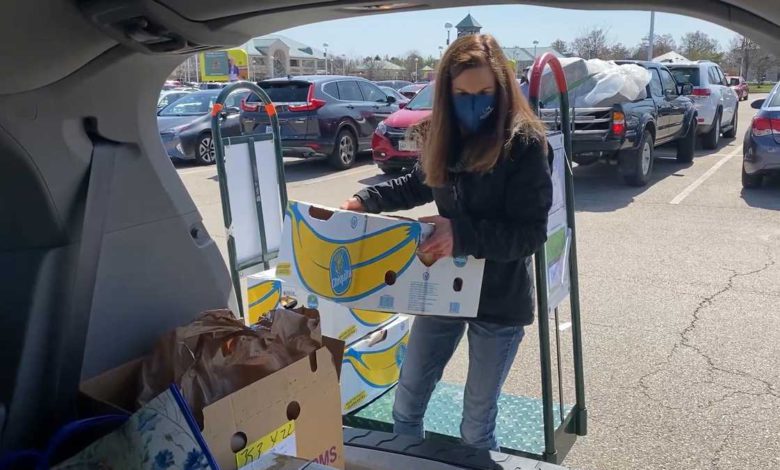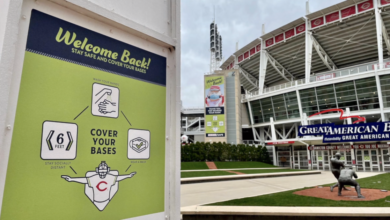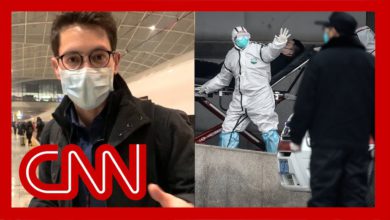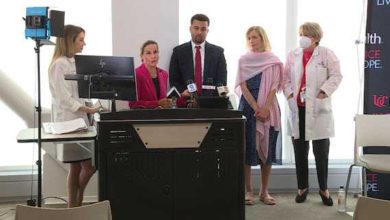

Imagine you're enjoying a nachos at a Reds or FC Cincinnati game. Chances are, guests didn't buy the last of the loaded snack from the concession stand. So what happens to all the leftover lettuce, tomatoes and onions after the game is over?A new Greater Cincinnati nonprofit called Last Mile Food Rescue aims to prevent any and all food waste from going into landfills. "Currently in Cincinnati, food waste is able to wrap around the I-275 loop two times. And so we're working to put a dent in that," LMFR dispatcher Benita Munnerlyn said.Last Mile Food Rescue began in November with a goal of wiping out food insecurity and promoting a healthier environment in the local area. Freestore Foodbank reports more than 270,000 households in the Greater Cincinnati area experience food insecurity. LMFR collects leftover and unused food and delivers it directly to more than 100 local nonprofits."Children are not going to learn on empty stomachs and parents and not going to go to work on empty stomachs," Last Mile volunteer Paul Verhagen said.Verhagen along with other volunteers drive to donor partners including Great American Ball Park, Delaware North, TQL Stadium, Kroger and United Dairy Farmers to pick up leftover meat and produce. Instead of taking food back to the Last Mile site, volunteers take the food directly to nonprofits like shelters and halfway houses. Pick-ups are called "rescues."Verhagen began volunteering in March and has already participated in 50 rescues. Volunteers use a free app to coordinate rescue assignments and companies utilize Last Mile technology to track their donations."You know, some days I'll do one," Verhagen said of his volunteer rescue runs. "Just one day last week I did four. And it's a blast. I mean, meeting people and serving the community which is really, I think, the most important thing right here." Last Mile Food Rescue said it has rescued more than 600,000 pounds of food since its beginning in November. LMFR said its goal is to rescue one million pounds by the end of 2021. So far, it's rescued more than 500,000 pounds.The nonprofit is currently seeking more drivers and more food-providing partners.To join the effort and inquire about having food picked up from your organization or delivered to a nonprofit, click here.
Imagine you're enjoying a nachos at a Reds or FC Cincinnati game.
Chances are, guests didn't buy the last of the loaded snack from the concession stand. So what happens to all the leftover lettuce, tomatoes and onions after the game is over?
A new Greater Cincinnati nonprofit called Last Mile Food Rescue aims to prevent any and all food waste from going into landfills.
"Currently in Cincinnati, food waste is able to wrap around the I-275 loop two times. And so we're working to put a dent in that," LMFR dispatcher Benita Munnerlyn said.
Last Mile Food Rescue began in November with a goal of wiping out food insecurity and promoting a healthier environment in the local area. Freestore Foodbank reports more than 270,000 households in the Greater Cincinnati area experience food insecurity. LMFR collects leftover and unused food and delivers it directly to more than 100 local nonprofits.
"Children are not going to learn on empty stomachs and parents and not going to go to work on empty stomachs," Last Mile volunteer Paul Verhagen said.
Verhagen along with other volunteers drive to donor partners including Great American Ball Park, Delaware North, TQL Stadium, Kroger and United Dairy Farmers to pick up leftover meat and produce. Instead of taking food back to the Last Mile site, volunteers take the food directly to nonprofits like shelters and halfway houses. Pick-ups are called "rescues."
Verhagen began volunteering in March and has already participated in 50 rescues. Volunteers use a free app to coordinate rescue assignments and companies utilize Last Mile technology to track their donations.
"You know, some days I'll do one," Verhagen said of his volunteer rescue runs. "Just one day last week I did four. And it's a blast. I mean, meeting people and serving the community which is really, I think, the most important thing right here."
Last Mile Food Rescue said it has rescued more than 600,000 pounds of food since its beginning in November. LMFR said its goal is to rescue one million pounds by the end of 2021. So far, it's rescued more than 500,000 pounds.
The nonprofit is currently seeking more drivers and more food-providing partners.
To join the effort and inquire about having food picked up from your organization or delivered to a nonprofit, click here.
Source link







